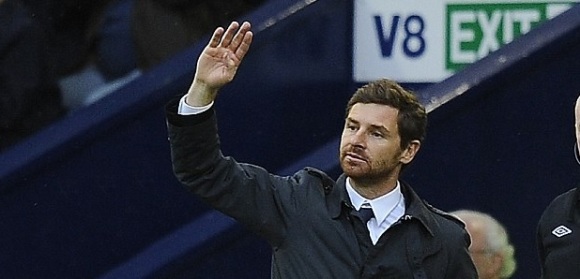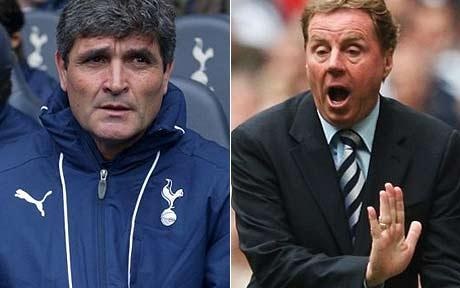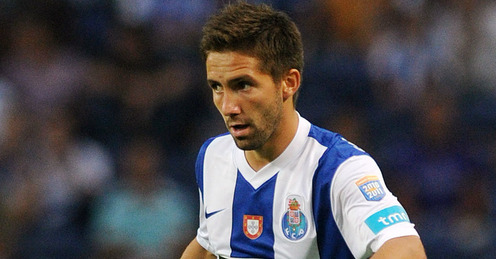As Spurs dispense with yet another manager, the club must now look to bring in their 6th permanent manager in the space of just 10 years. Daniel Levy’s next move will be the most important the club has made in many years, and must not be hurried.
Last time I wrote on here, I was looking forward to the football we could look to expect under our new manager, and in a neat, roundabout and oh-so-Spurs way, I now find myself writing about finding his replacement. There was a certain inevitability surrounding today’s breaking news on the future of our Head Coach, with a crestfallen André Villas-Boas admitting after the record 5-0 defeat at home to Liverpool, with none of his usual self-assuredness, that a decision on the future of his job was “not mine” to make. While many in the press, and of course supporters of our closest rivals, were eager to see him fail, to pick at his remains like vultures circling a wounded animal, a sizeable majority of Spurs fans have been supportive of their manager throughout his tenure. That may largely have had to do with a burning desire to prove the fans of a certain club on the Fulham Road wrong – they surely would come to regret their decision to sack him after such little time, while all along it had been the result of some bruised egos amongst the Chelsea dressing room and lack of patience from a bored Russian oligarch. Certainly, AVB’s record at Porto is still hard to argue with, and despite belittling remarks as to the quality and competitiveness of the Portuguese SuperLiga, winning the triple in one’s first season is no fluke. Yet after an initial promising season at White Hart Lane, narrowly missing out on the Champions League on the last day of the season, the pervading opinion now is that we are seeing a repetition of his failings at Chelsea; mainly that of a stubbornness to change and lack of a “Plan B” should the game call for a decisive change in approach. More worryingly for Spurs fans is that we are seeing history repeating itself within our club.

Andre Villas-Boas’ tenure as Spurs manager ended today following a run of poor form and off the back of a crushing 5-0 home defeat to Liverpool.
It seems an age ago that we were last talking about Juande Ramos, there are many parallels to be drawn in these scenarios, played out over a 5-year gap in the club’s history. If we look back to Autumn 2007, when Spurs lost 2-1 at home to Getafe in the UEFA Cup, the club had seen a poor set of results following perceived complacency from manager Martin Jol, with rumours of Jelly Babies as after training-snacks being one such example. In our pre-AVB scenario some 5 years later, many saw Harry Redknapp as taking his eye off the ball, with the glossy allure of the England manager’s job somewhat distracting him from his work at Spurs and seeing the team’s form collapse and drop out of Champions League contention. In both these cases, there was a shining beacon on the horizon; a suave, cultured European coach who had achieved fantastic European and domestic success; Juande Ramos of Seville, UEFA Cup and Copa del Rey winner, and of course André Villas-Boas, winner of the Portuguese domestic double and Europa League. In both cases, despite optimism abound and early successes, Ramos winning the League Cup in a thrilling 2-1 victory over Chelsea, and Spurs, largely driven by the individual brilliance of one Gareth Bale, finding superb form in the second half of the 2012/13 season, there was to be disappointment to follow. A terrible start to the 2008/09 season under Ramos saw Spurs achieve, what a certain Mr Redknapp will remind anyone who cares to listen, a meagre 2 points from the first 8 games of the season. The rest, as they say is history.

Harry Redknapp was brought in as a steadying influence and to arrest the club’s alarming form under Juande Ramos. Villas-Boas’ replacement ultimately faces a tougher task – qualification for the Champions League is a must.
Harry Redknapp was brought in as a steadying figure – a man manager who would make the underachieving, confidence-low yet talented Spurs players regain their sense of pride and passion, and fight their way out of what was undeniably relegation form. Spurs climbed to 8th place by May of 2010, despite their abysmal start, and Redknapp went on to lead the club to their astounding, yet one and only foray into the giddy heights of the Champions League. In this sense, Redknapp far exceeded what was expected of him. The successor to AVB has a far tougher task on their hands, however, with qualification for the Champions League and a return to swashbuckling, attacking and fluid football being the main demands of both Spurs fans and Chairman Daniel Levy. Spurs have yet to find a long-term managerial solution to appease fans and the expectations of a club competing near the top end of the table. With £100m having been spent this summer and a director of football willing to travel the world to find top talent, the pressure will be high, not just on the new manager, but on Daniel Levy to make the right choice, and bring stability to our club once more. The Spurs faithful will be watching and waiting.
In a cruel twist of fate, as the dust settles following the club’s decision to sack our manager, the draw for the next round of the Europa League was made on the same day. Our opponents for the round of 32 stage of the competition? Dnipro Dnipropetrovsk of the Ukraine, managed by… Juande Ramos.











